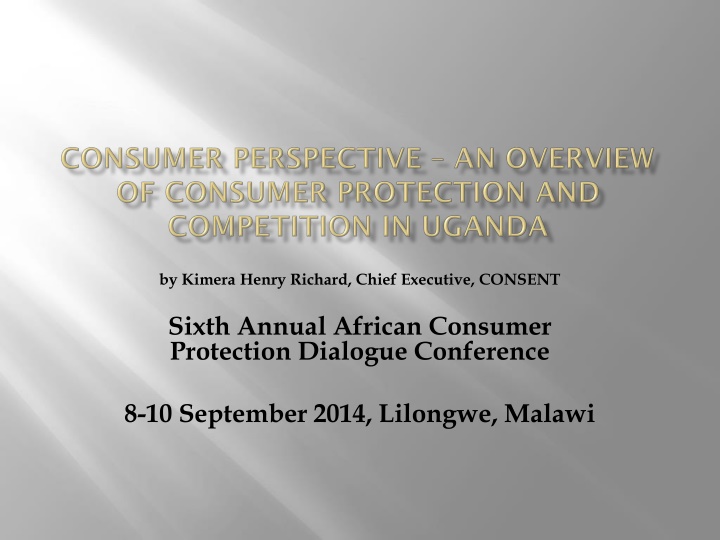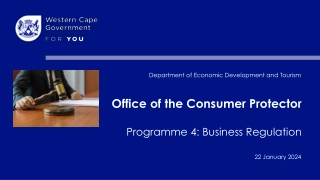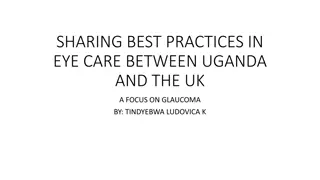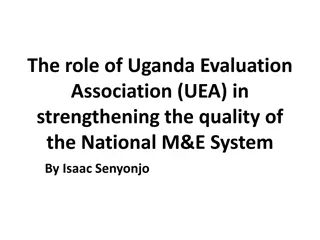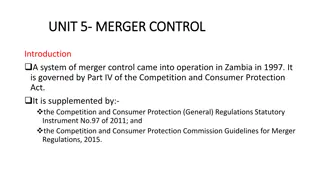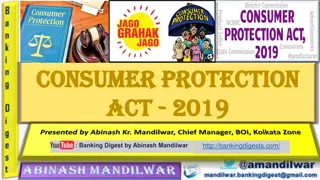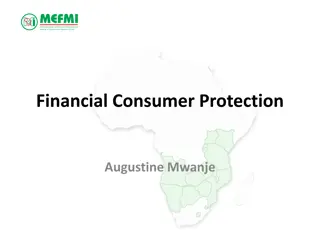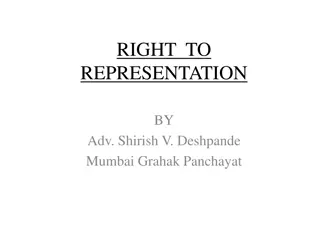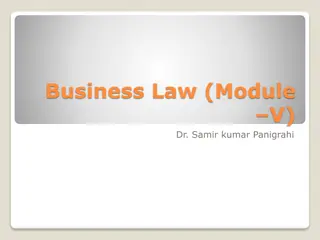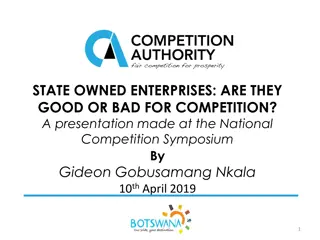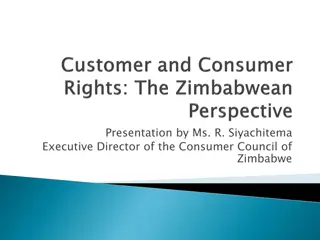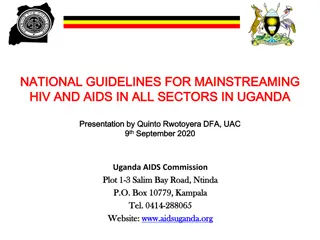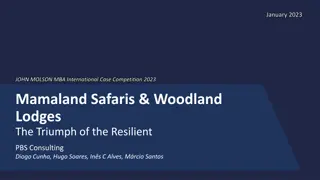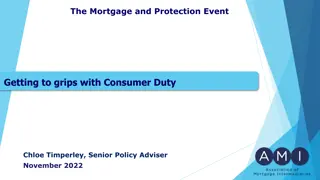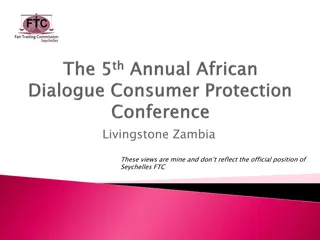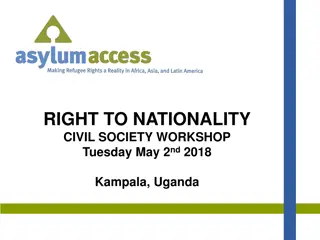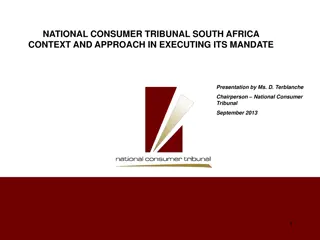Consumer Protection and Competition in Uganda
Consumer protection and competition laws play a crucial role in Uganda's socioeconomic environment, challenging stakeholders from the Executive to consumers across various sectors. The country faces evolving market dynamics, necessitating robust policies to address deceptive practices and safeguard consumer rights. Despite undergoing policy revisions, Uganda still lacks a specific framework for consumer protection and competition, highlighting the need for enhanced regulatory measures to promote fair trade and ethical standards, ensuring sustainable socio-economic development.
Download Presentation

Please find below an Image/Link to download the presentation.
The content on the website is provided AS IS for your information and personal use only. It may not be sold, licensed, or shared on other websites without obtaining consent from the author.If you encounter any issues during the download, it is possible that the publisher has removed the file from their server.
You are allowed to download the files provided on this website for personal or commercial use, subject to the condition that they are used lawfully. All files are the property of their respective owners.
The content on the website is provided AS IS for your information and personal use only. It may not be sold, licensed, or shared on other websites without obtaining consent from the author.
E N D
Presentation Transcript
by Kimera Henry Richard, Chief Executive, CONSENT Sixth Annual African Consumer Protection Dialogue Conference 8-10 September 2014, Lilongwe, Malawi
Consumer protection and competition major pillars in the socioeconomic environment in Uganda. They are a challenge to all stakeholders in Uganda right from the Executive to consumer at the end of the goods and service value chain. Consumer protection and competition laws, related policies and regulatory frameworks exist in Uganda.
Under respective Government Ministries, Departments and Sector Agencies with mandates of trade, food, beverages, agriculture, communications, technology, financial services: (banking, micro finance, insurance, mobile money transfers, stock market), health, energy, water, transport, hospitality, labor, environment, energy, education, local authorities among others. With liberalization and the establishment of free and competitive markets, governments, businesses and consumers are faced new challenges in the market. the advent of globalization, economic
Changes environments given the weak and non-existent policy, legal and regulatory mandates plus limited capacities to comprehend the ever evolving innovations, demands and practices in respective sectors like financial services, health, education, communications, housing services targeting consumers through deceptive servicing practices, abusive debt collection tactics, and fraudulent business opportunity schemes. have affected political, economic and social Given the challenges, changes and the evolution of technologies, communications, social media, business transactions like e- commerce, e-banking plus market trends, a number of policies and legal frameworks have been reserved and amended to address unscrupulous practices counterfeiting, producing and marketing of substandard products (goods and services), money laundering, pyramid schemes, (green card) scams international employment that affect consumers loss money, property and life savings. and other vices like
Other policies and legal frameworks are under revision and/or in the process of being reviewed. With all the positives of the existing frameworks that can be referenced to as consumer laws, Uganda still lacks a specific framework on consumer protection and competition. The two frameworks are key to the consumer as they specifically provide for consumer rights protection, anti-trust and deceptive practices, promotion of ethical standards, fair trade, redress mechanisms. On a positive note, Uganda has moved to have a single policy containing competition and consumer protection COMESA approach). framework (derived from When empowerment, business enabling environment, ethical business practices and sustainable socio-economic development will be promoted gradually. accomplished and implemented consumer welfare and
The State and consumers in Uganda are faced with a fluid situation whereby the obligated defenders of consumer rights are at times the abusers knowingly and unknowingly. To-date the Executive, Judiciary, Legislature, Regulatory and Business is in business creating a conflict of interest in a number of aspects and failure to address the unfair market practices affecting the consumer. Consumer protection and advocacy is greatly affected by systematic weakness and worsened by also weak consumer organizations. Enforcement dependant on the good will of willing development partners and respective regulatory agencies. and consumer empowerment is weak, limited and Most of obligated regulatory agencies lack institutional infrastructure, human and financial resources to effectively enforce and rollout fair trade business practices and protect consumers across the board.
Consumers, scrupulous businesses and the country at large remain at a loss. The challenges affect consumers across the market irrespective of being literate or illiterate. Effective consumer protection and competition frameworks are a perquisite in any liberalized environment. Policy, legal and regulatory framework reform to address the consumer plight, consumer information and outreach remains key to address the evolving global market trends, life styles and related challenges of scams, crime and fatalities. awareness, empowerment,
Benefits of consumer protection and competition are many to promote a healthy and productive consumer market, entrepreneurship and innovation environment. Consumer challenges can effectively be addressed through stakeholder engagements, partnerships at national, regional, bilateral and multilateral experiences, expertise, mitigating mechanisms rapid alerts, capacity building and technical assistance facilitation. levels through sharing of The sustainable empowerment. best policing, mechanism enforcement, is cost effective awareness and and consumer
